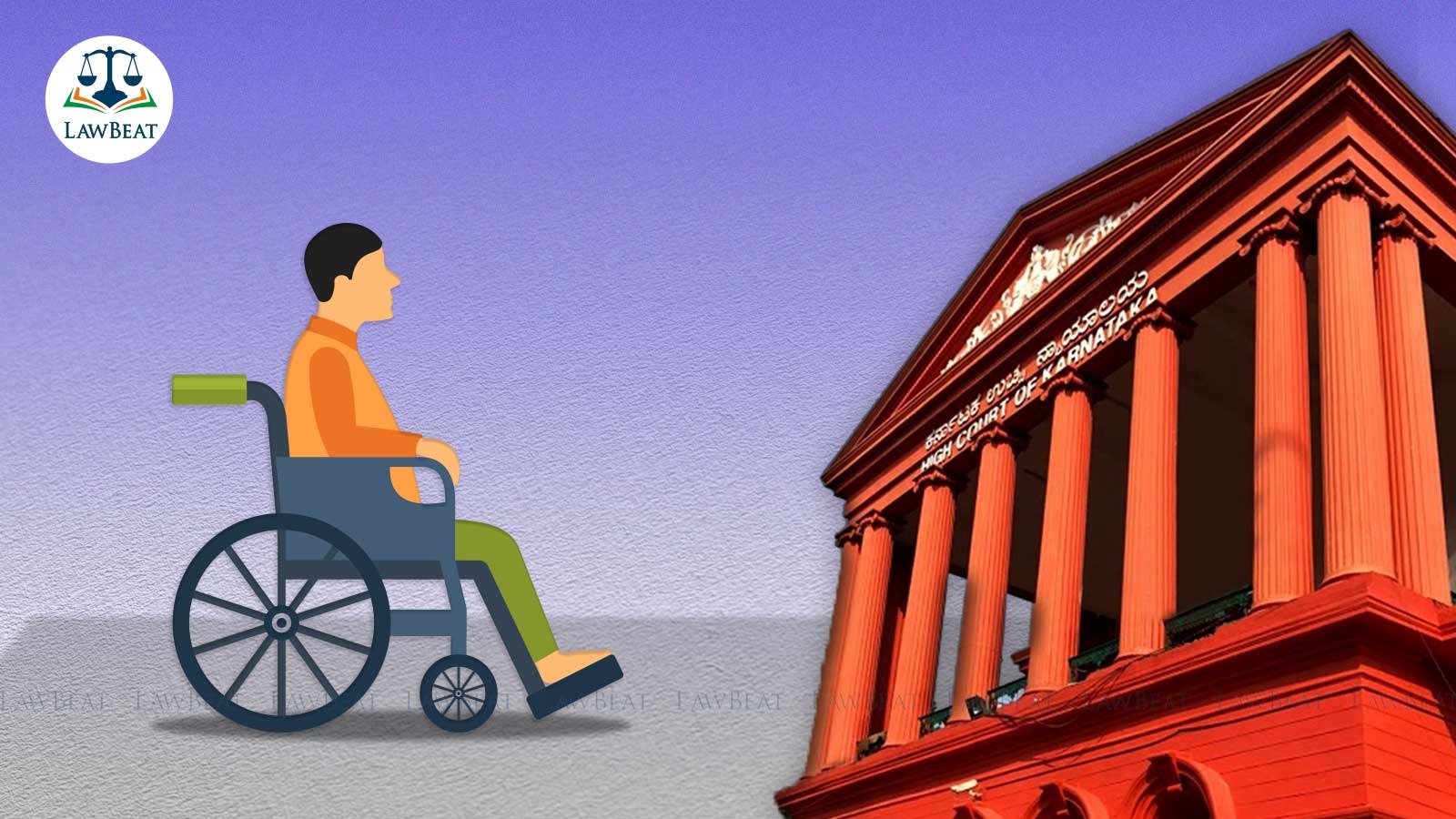Husband With 75% Disability Exempted from Paying Maintenance : Karnataka HC

The court after meticulously weighing arguments from both sides, stated that, “it is an admitted fact that the husband suffers from a disability which is to the tune of 75% and takes away all the badge of the husband to be an “able bodied man” as disability is admitted”
In a significant ruling, the High Court of Karnataka held that a husband is exempted from paying maintenance while rejecting the plea of a wife seeking maintenance from her husband suffering from 75% disability.
The court, presided over by Justice M. Nagaprasanna, held that “no direction can be issued to the husband to pay maintenance to the wife/respondent as he is no longer an able bodied man to search for employment and pay maintenance to maintain the wife and the child.”
The case, which involved three writ petitions filed by a husband and wife, dealt with the dispute between Mr. Pankaj Singh Sengar and Mrs. Priyanka Singh, who were married on May 16th, 2011 and have a daughter from their union. However, marital discord ensued, prompting the husband to file for annulment of marriage. He alleged the wife had voluntarily left their matrimonial home.
Amidst these legal proceedings, the wife had filed for interim maintenance under Section 24 of the Hindu Marriage Act, 1955. Initially, the court granted interim maintenance of Rs. 15,000 monthly. However, the husband’s failure to comply ignited a dispute over unpaid arrears. Despite Mrs. Singh's attempts to claim these, the court rejected her calculations, prompting her to seek increased maintenance.
The wife also contended that the husband had abandoned her while she was carrying their child. Throughout this period, she had sustained herself independently, with no support from the husband, who had refused to provide maintenance for either the wife or the child. Consequently, the wife had sought an appropriate order to enhance the grant of maintenance.
Meanwhile, the husband had suffered a stroke, resulting in a 75% disability, leading to his resignation from work. Due to alleged non-payment of maintenance, the wife had initiated an execution petition to recover arrears, resulting in the court's order on February 5th, 2016, directing the husband's father to settle the arrears. Failure to comply had led to fine levy and arrest warrants against the husband on July 12th, 2017, and August 10th, 2017, respectively.
Concurrently, the husband had filed Writ Petition in 2017, seeking to recall the maintenance order issued on August 10th, 2017.
The counsel for the husband argued that “maintenance today is a dream to be paid by the husband as he has suffered disability of 75% which does not get him any job. He is no longer an able bodied person to search for job and maintain the wife and the child.”
The court after meticulously weighing arguments from both sides, stated that, “it is an admitted fact that the husband suffers from a disability which is to the tune of 75% and takes away all the badge of the husband to be an “able bodied man” as disability is admitted.”
The court addressing the question central to the dispute, “Whether the husband is to be directed to pay maintenance and the order passed by the concerned Court directing issuance of arrest warrant or fine levy warrant should be sustained?” , stated that, “Today the husband/petitioner is wanting maintenance to himself and not in a position to pay maintenance to the wife/respondent.”
Referencing legal precedents, including the Supreme Court's ruling in Rajnesh v. Neha, the court noted the observation “that serious disability or ill-health of a spouse who would require constant care and recurring expenditure would also be a relevant consideration while quantifying maintenance.”
The court stressed that “Maintenance cannot spring in thin air. The primary factor is whether the husband is an able bodied man to maintain the wife or the child.”
The court, therefore, concluded that given the petitioner's disability, coupled with cognitive dysfunction, the trial court should have granted the application seeking recall of the maintenance order, restricting the recall to the date when the husband became disabled. As the disability occurred in December 2013, by that time, there were already arrears owed by the husband. The court should have considered at least that date in its decision-making process.
The court further noted that if directed to pay arrears, as requested by the wife, it would undoubtedly exacerbate the husband's already dire situation, compounded by his 75% disability. He cannot reasonably be expected to function as an able-bodied individual capable of maintaining the wife and child. Additionally, “The wife is earning, even if not earning is completely qualified and is capable of earning,” the court said, emphasising that the orders requested by the wife cannot be passed.
Consequently, the court ruled that concerning the grant of maintenance to the child, it is deemed appropriate to specify that the father of the husband/petitioner should assume responsibility for the grandchild's necessities, encompassing her education and all essential aspects of her upbringing and development. “This is the only relief that the wife/respondent is entitled to, in the case at hand,” the court remarked.
The wife’s plea was thus held, untenable and was rejected with the order that the maintenance be paid to the date on which the husband suffers disability.
The court also quashed the execution petition filed by the wife.
Cause Title: Priyanka Singh v Pankaj Singh Sengar [WP 48615 of 2024]
